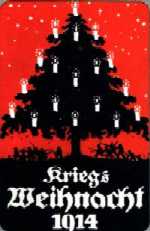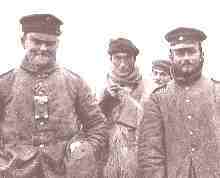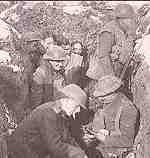As The 100th Anniversary Of The First Year Of World War I (Remember The War To End All Wars) Continues ... Some Remembrances-Poets’ Corner
In say 1912 in the time of the supposedly big deal Basle Socialist Conference which got reflected in more circles than just workingmen, small shopkeepers and small farmers, or 1913 for that matter when the big deal European powers were waging "proxy" war, making ominous moves, but most importantly working three shifts in the munitions plants, oh hell, even in the beginning of 1914 before the war clouds got a full head of steam that summer they all profusely professed their undying devotion to peace, to wage no war for any reason. Reasons: artists who saw the disjointedness of modern industrial society, freaked out at what humankind had produced, was producing to place everybody in an inescapable box and hence their cubic fascinations from which to run, put the pieces to paint; sculptors who put twisted pieces of scrape metal juxtaposed to each other to get that same effect, an effect which would be replicated on all those foreboding trenched fronts; writers, not all of them socialists either, some were conservatives that saw empire, their particular empire, in grave danger once the blood started flowing who saw the v of serious history books proving that, according to their Whiggish theory of progress, humankind had moved beyond war as an instrument of policy; writers of not so serious novels drenched in platitudes and hidden gabezo love affairs put paid to that notion in their sweet nothing words that man and woman had too much to do to denigrate themselves by crying the warrior’s cry and for the sweet nothing maidens to spent their waking hours strewing flowers on the bloodlust streets; musicians whose muse spoke of delicate tempos and sweet muted violin concertos; and poets, ah, those constricted poets who bleed the moon of its amber swearing, swearing on a stack of seven sealed bibles, that they with all their creative brethren would go to the hells, literary Dante's rings, before touching the hair of another human, that come the war drums they all would resist the siren call, would stick to their Whiggish, Futurist, Constructionist, Cubist, world and blast the war-makers to hell in quotes, words, chords, clanged metal, and pretty pastels.
And then the war drums intensified and they, they made of ordinary human clay as it turned out, they who could not resist the call, could not resist those maidens now busy all day strewing flowers on the bloodlust streets for their soldier boys, those poets, artists, sculptors, writers, serious and not, musicians went sheepishly to the trenches with the rest of the flower of European youth to die deathless deaths in their thousands for, well, for ….
| |||||
So writes Bruce Bairnsfather about the Christmas Truce of 1914. This event was an outbreak of spontaneous fraternization between troops almost entirely concentrated in the British sector on the south edge of the Ypres Salient. Contact was in varying degrees from exchanging smokes, chatting or playing football in No-Mans-Land, to sharing meals and dinner gossip in the opponents trenches. It occurred less frequently where one or both of the opposing formations were elite or hard-edged types. From its occurrence, the Christmas Truce has been looked upon as a symbol of a humanity not yet submerged by the mechanical forces of industrial-age warfare. With its ability to inspire and hold the imagination of later generations, the Legend of the Christmas Truce might be looked upon as a rare positive outcome of the Great War. Those present, however, like Bairnsfather, premier cartoonist of the First World War and creator of "Old Bill" , were decidedly less sentimental about it. His account above of the unauthorized truce is widely quoted, but no one ever adds what he wrote a few paragraphs later: "There was not an atom of hate that day and yet, on our side, not for a moment was the will to war and the will to beat them relaxed It was just like the interval between rounds in a friendly boxing match.' [Author's italics.] An account of a lieutenant in the 2nd Battalion, Scots Guards shows how some of the participants took a practical approach:
The crucial thing to note is that distrust was a feature of this and other truces occurring throughout the war. The English respected a brave and resourceful enemy but there was no love or liking. If there was no hostility, neither was there a relaxation of the will to win; if not that, then at least there was no relaxation of suspicion. And it proved, above all, to be an excellent opportunity for a safe reconnaissance. There is no evidence that the truce extended to the French front, and this is understandable since they had started a major counterattack in the Champagne on December 20th. The Germans were the invaders and were on French soil. The memories of defeat in 1871 and the loss of Alsace-Lorraine was too vivid in French memory to allow any rapprochement with the hated Boche. Frank Richards, one of the very few "other ranks" to write a book about the war after beating odds on the order of thousands to one by surviving all four years, reports that the French people "were saying all manner of nasty things about the British Army" when they "...had heard how we spent Christmas Day;" French women spat on British troops. Finally, if the Christmas Truce had any effect on the participants or the eventual course of the war, it was negligible. At the time, it made the various staffs apprehensive, but this was soon put in order. Guy Chapman tells us that a year later: "The staff, perhaps threatened by fire-eaters in London, had forbidden all fraternization, and to ensure their orders being carried out, commanded slow bombardment all during December 25th."
This article contains extensive quotes from an article of the same name by Frank Contey which appeared in Relevance: The Quarterly Journal of the Great War Society, Vol 2., No.1, Winter 1992/1993. Other internet resources on the Christmas Truce include:
| |||||




No comments:
Post a Comment